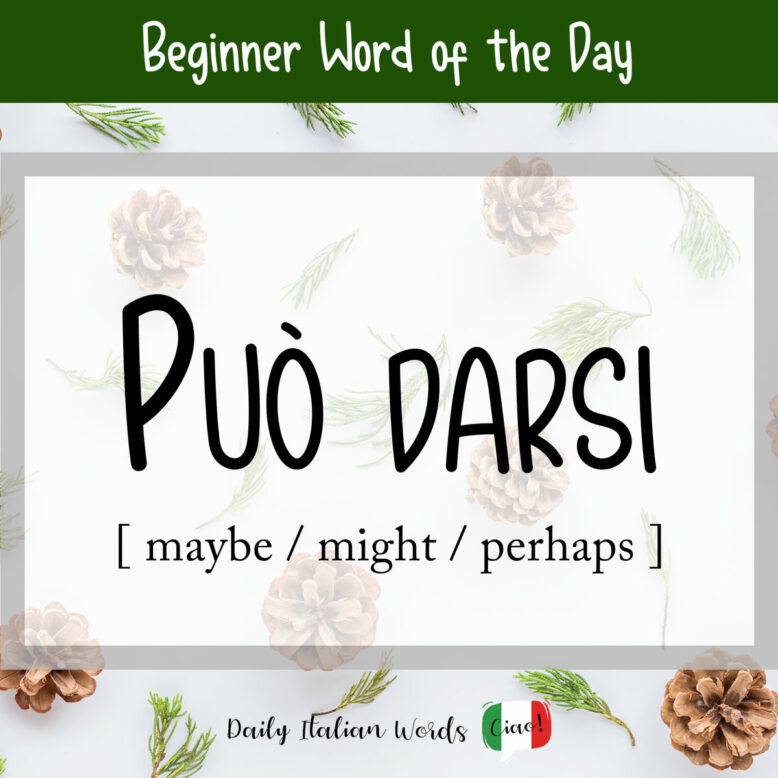While forse (maybe) and magari (possibly) are perfectly good words for expressing a possibility or uncertainty, an expression you simply cannot ignore if you really want to sound fluent in Italian is può darsi.

It is the combination of può (the third-person singular of potere ‘to be able‘) and darsi (the reflexive form of dare ‘to give‘). Some possible translations in English include maybe, perhaps, may, might and it’s possible.
Unlike forse and magari, può darsi is always followed by the conjunction che (that) and a verb in its subjunctive form, be it the present, past, imperfect, or past perfect. It can also be followed by the future and conditional tenses.
Può darsi che Anna sia in ritardo.
Forse Anna è in ritardo.
Magari Anna è in ritardo.
Maybe / Perhaps / It’s possible Anna is late.
Anna may / might be late.

The only time you don’t have to place che after può darsi is when it is used as a response to a question or doubtful statement. For example:
- Verranno alla festa domani? – Può darsi. = Are they coming to the party tomorrow? – Perhaps.
- Forse non verranno alla festa. – Può darsi. = Maybe they won’t come to the party. – It’s possible.
Note that it is possible to insert the word anche (also) in between può and darsi to give the sentence extra emphasis.
Può anche darsi che tutto si risolverà per il meglio.
It is quite possible / It may well be that everything will turn out for the best.

A similar expression that also requires che + the subjective form is the conditional phrase potrebbe essere (it could be / it is possible).
- Potrebbe essere che Anna sia in ritardo. = It could be that Anna is late.
- Potrebbe essere che Federico non abbia tempo. = It is possible that Federico won’t have time today.
This article is also available in video format on our YouTube channel. The audio version can be found on Podbean, Google Podcast, Apple Podcast and Spotify.
Heather Broster is a graduate with honours in linguistics from the University of Western Ontario. She is an aspiring polyglot, proficient in English and Italian, as well as Japanese, Welsh, and French to varying degrees of fluency. Originally from Toronto, Heather has resided in various countries, notably Italy for a period of six years. Her primary focus lies in the fields of language acquisition, education, and bilingual instruction.


